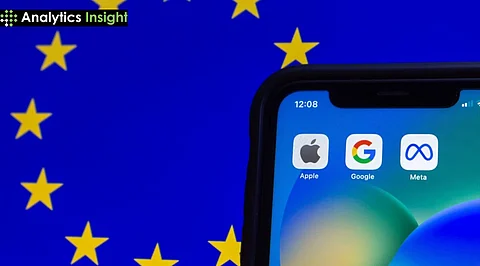

Google has recently signed the European Union’s code of conduct for developing powerful AI models like text, image, and video generators. Meta, however, has refused to sign the Act, saying that the guidelines impose limitations that are out of the scope of an AI Act. The tech giant further expresses its concern that complying with these rules may restrict innovation.
Joel Kaplan, the Chief Global Affairs Officer at Meta, in his recent post on LinkedIn, highlighted this issue further by mentioning that the EU Code has legal uncertainties for AI model creators. Meta has had other conflicts before this with the EU’s guidelines. The most recent one was over political advertising rules.
On the other hand, Google strongly supports the EU AI Act and passes an opinion in favour of European citizens. The company says citizens can now access new and powerful data models as they keep rolling out.
The President of Global Affairs at Google, Kent Walker, also said that the widespread utilization of artificial intelligence will increase Europe’s economy significantly. He put Europe’s economic rise in precise numbers, suggesting it can grow by US$1.62 trillion by 2034.
One of the biggest reasons why Meta refuses to comply with the EU AI Act is due to their restrictions on innovation. This obstacle to innovation, especially when the competition is growing every day, puts companies adhering to the European Union Code of Practice at a major disadvantage. Furthermore, ensuring transparency and keeping up with regulatory mandates gets quite challenging as the technology is rapidly evolving.
Apart from this, smaller businesses or start-ups also can’t afford to join the EU Code as they struggle to execute these codes of conduct. Implementing these regulations might require a lot of initial investments in infrastructure, which is out of bounds for these small-scale enterprises.
Also Read: How the EU AI Act is Changing the Global Tech Game
Adopting the European Union Code allows artificial intelligence model developers to establish trust in the market and reduces administrative costs, saving them a lot of time. Additionally, complying with legal procedures becomes difficult without any predefined set of guidelines, so this EU Code of Conduct comes in handy in this case.
Also Read: Are AI Models Secretly Learning from Each Other?
Whether adhering to AI guidelines set by the European Commission is good or bad is subject to the future goals of the company. Some tech giants like Google are willing to adhere to it, while Meta, the parent company of Facebook and Instagram, rejects it. From Meta’s perspective, these codes stagnate optimum growth and innovation in sophisticated artificial intelligence models.
